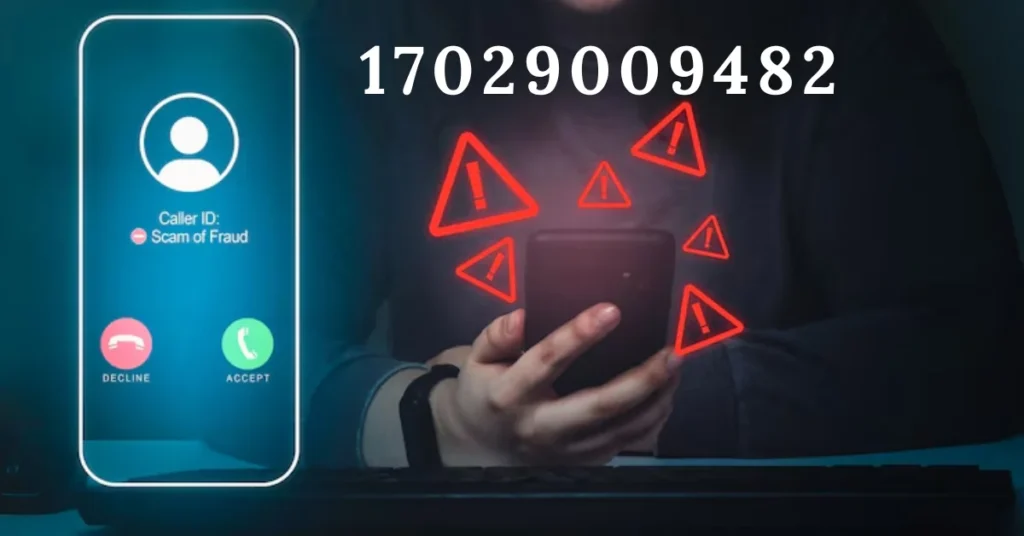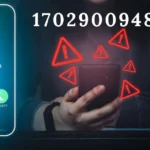Introduction
If you’ve recently received a call from 17029009482, you’re not alone—and you’re right to be cautious. This number has been reported by many users as part of a growing wave of scam calls targeting individuals with fake offers, phishing attempts, and scare tactics. The goal? To trick you into revealing personal information or making financial transactions.
Let’s dive into how this scam works, what red flags to look out for, and—most importantly—what to do if you’ve already answered or engaged with this number.
Understanding the Scam Landscape
Why Are Scam Calls Increasing?
Scam calls are becoming more frequent due to the ease with which fraudsters can spoof numbers, automate robocalls, and access leaked data online. Numbers like 17029009482 are often part of broader networks, making thousands of calls a day.
How They Trick You
These calls often come with:
- Robotic or AI-generated voices.
- Fake offers like lottery wins or IRS refunds.
- Threats about legal actions or account suspensions.
- Promises of low-interest loans or tech support help.
What Is 17029009482 Doing Specifically?
Common Reports from Recipients
People receiving calls from 17029009482 often report:
- Posing as bank or government representatives.
- Pressuring the victim into giving bank or SSN details.
- Redirecting to live agents who ask for payment or private data.
- Calling multiple times per day from similar numbers.
Scare Tactics Used
These calls can be aggressive. Some messages claim:
- “You owe the IRS and will be arrested if you don’t pay.”
- “Your bank account has been frozen due to fraud.”
- “There’s suspicious activity on your social security number.”
Red Flags to Watch Out For
Too Urgent or Threatening
Legitimate institutions won’t pressure you with threats. Scammers, on the other hand, create panic to trigger irrational responses.
Requests for Personal or Financial Info
Banks, the IRS, or tech companies will never ask for sensitive details over a phone call—especially unsolicited ones.
Odd Call Patterns or Accent
Calls may sound automated, come at strange hours, or feature representatives with scripts that feel unnatural or overly aggressive.
What to Do if You Receive a Call from 17029009482
1. Don’t Pick Up Unknown Numbers
Let the call go to voicemail. If it’s legitimate, they’ll leave a message.
2. Block the Number Immediately
After one suspicious call, block 17029009482 on your device. This won’t stop all scams, but it reduces your exposure.
3. Report the Call
Report scam numbers to your country’s fraud center (such as FTC in the U.S.) or through your carrier’s spam reporting feature.
4. Never Share Personal Details
Even if they claim to know your name, do not share your address, card number, SSN, or passwords.
What If You Already Answered or Gave Info?
Act Quickly
If you’ve shared sensitive information, take these steps now:
- Contact your bank to freeze your account.
- Change your passwords for important accounts.
- Monitor credit reports for unauthorized activity.
- File a fraud report with relevant authorities.
Consider Identity Theft Protection
If you fear data compromise, consider signing up for a credit monitoring or identity theft protection service.
How to Stop Future Scam Calls
Use Call-Blocking Apps
Apps like Hiya, Truecaller, or your mobile provider’s built-in spam filter can help.
Register with “Do Not Call” Lists
This won’t stop all scammers, but it can reduce legitimate telemarketing calls.
Be Cautious with Online Forms
Scammers often buy phone lists from shady marketing websites. Always read the fine print before submitting your phone number online.
Why Do They Keep Calling Even After Blocking?
Spoofing Tricks
Scammers rotate or “spoof” numbers so they can bypass block lists. They may even mimic local numbers to look more legitimate.
Auto-Dialing Systems
Calls are often generated by bots, not humans, meaning once you’re in their database, calls can keep coming unless fully filtered.
Psychological Tricks Used by Scammers
Fear and Urgency
They know scared people make fast decisions. That’s why they use phrases like “immediate action required.”
Pretending to Be Helpful
Scammers may act overly polite or supportive, pretending to guide you through a solution to your “problem.”
Guilt and Shame Tactics
Some try to make you feel responsible for a fake issue, such as “unpaid taxes,” so you’ll pay out of guilt.
How to Educate Others About 17029009482
Share the Warning
Warn family, especially seniors or less tech-savvy individuals, about these calls.
Social Media Posts
Posting on community forums or Facebook groups can help others avoid falling into the same trap.
Who Is Behind These Calls?
While tracing the exact source of 17029009482 is tough, many scam operations are run by overseas call centers using VPNs and spoofed numbers.
Authorities often struggle to shut them down due to jurisdictional and technological challenges.
Conclusion
The rise in scam calls from numbers like 17029009482 is a reminder that staying informed is your best defense. Trust your instincts—if something feels off, it probably is. Protect your data, educate others, and always double-check before you act on anything shared via a random phone call.
ALSO READ: trwho.com security: Smart Ways to Stop Cyber Threats
FAQs
Is 17029009482 a real company number?
No, it’s not linked to any official business or government agency.
Can I trace who called me from 17029009482?
Not easily. Most of these calls are masked using spoofing tools, making it hard to trace the real source.
What happens if I answer a scam call?
They may record your voice, mark your number as active, or attempt to scam you further. Avoid engaging.
How can I report scam numbers?
Use your national fraud agency (e.g., FTC in the U.S.), your phone provider’s spam report feature, or apps like Truecaller.
Are scam calls illegal?
Yes, and authorities are working to track them. But enforcement can be difficult due to spoofing and international origins.






